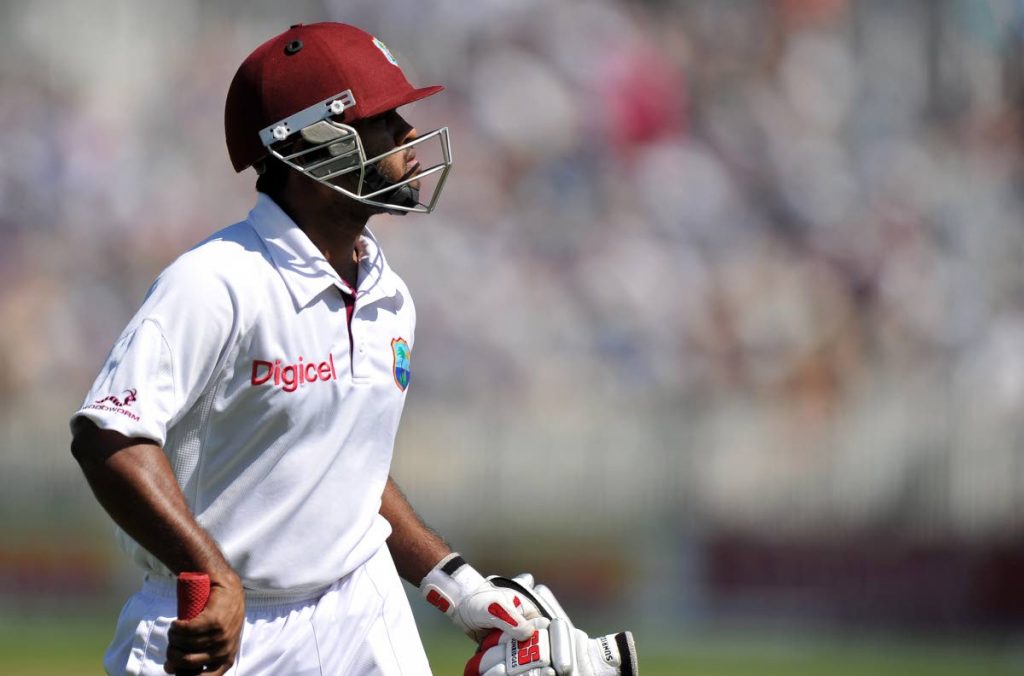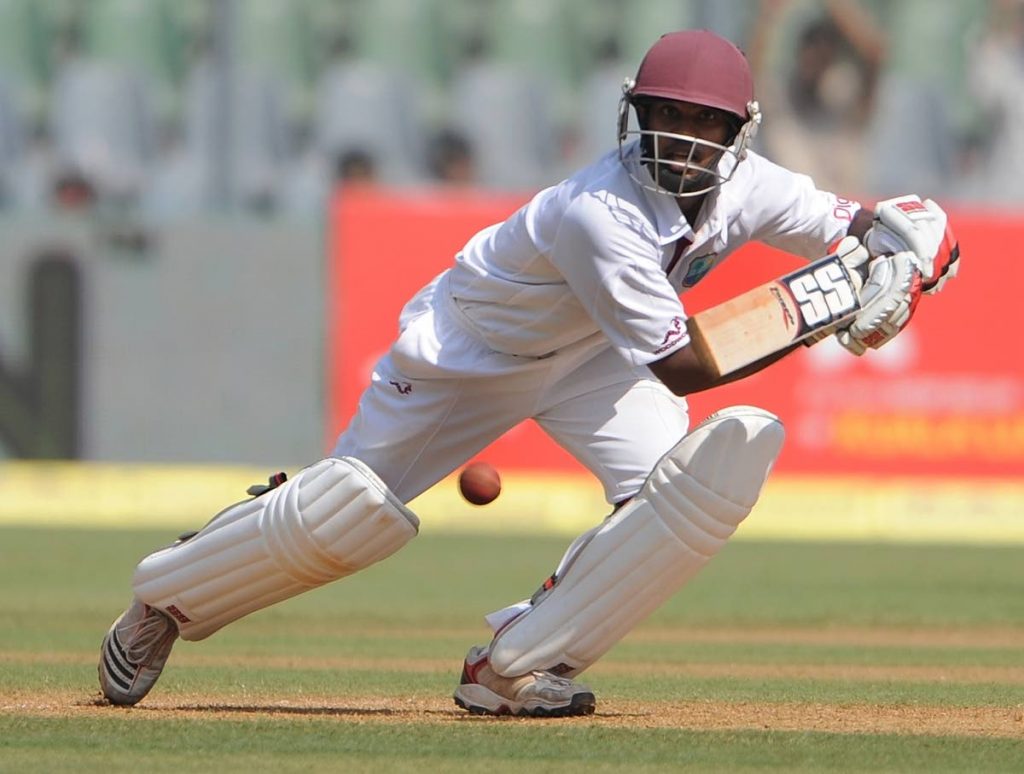Dressing room drama and pro sports pressure

"BEHOLD, I am sending you out like sheep among wolves." A professional sports career is the dream of many youngsters around the world but few are aware of the intricacies of a professional dressing room where competition is as fierce internally as it is against opposing teams. Jealousy and pride are no strangers to sporting dressing rooms around the world and can weaken a player already struggling with self-doubt.
The stories of child prodigies do not always have fairytale endings when early success does not transition into adulthood. It can be traumatic when young, sheltered stars face adversity.
US footballer Freddy Adu, who had commercials with Pele at 14, and a Nike deal, never became the star the world envisioned. He bounced around 14 teams in 14 years and is now out of the game at 30.
Former West Indies cricket Adrian Barath, 30, was also touted for greatness from extremely early.
Barath’s career began to flounder with injury and a lean run with the bat that lasted nearly two years. His normally impregnable defence and stylish stroke-making were gone. Unable to trust his technique, he trusted his God and made a sudden exit from the game in 2014, never to return.
He has since been heavily involved in his religion (he is a devout Jehovah's Witness) and shown no inclination to return to sport.
Moulded initially by his father Ralph from the age of ten, Barath, born in Enterprise, Chaguanas, began his National League career at the nearby Munroe Road Cricket Club and began to showcase his tremendous ability. At 14, Barath changed clubs, moving to Clarke Road United where his career exploded.
But with regional and international success and now growing to a man, Barath split with Clarke Road and went to Queen’s Park Cricket Club, where he failed to replicate his success.
Clarke Road United president Baldath Mahabir, in an interview with Newsday, said he always knew his shift to the Parkites was not going to work out. Mahabir said Clarke Road invested heavily in shaping Barath’s career and said its demise was the fault of Barath, the TT Cricket Board and West Indies Cricket Board.

He said Clarke Road had the blueprint to shoot Barath to global stardom but the attacking opening batsman went his own way.
“We put him straight into the first team because we recognised the immense talent he had. He was very protected. He came up with a fair amount of protection and guidance from his father and the club. There may be an element of truth to the belief that he began to flounder when he went out into the real world without support systems behind him,.
“We had a support group around Adrian that used to meet every quarter, every three months for dinner and plan his next three months. And that was from the time he was age 15. The people in that committee were the late Alloy Lequay, his dad, Roland (Sampath), myself and Adrian.
"At some point in time, with the success he had, he drifted away from us. When the runs began to dry up and the injuries began, the support systems for the young man were not there.”
Mahabir said Barath was unable to cope with the early challenges.
“You grow up in a family from (age) 15 to 20 where you have every support...We understood he was a child and we were putting this little child into a big man’s world. He grew up too fast, in other words. His success came at such a rapid pace that his cricket and mental development didn’t keep pace with the talent.
"When he left the cocoon and support system of Clarke Road and went into the wide ocean, he floundered.” Mahabir said Barath had a direct mentor in TT captain Daren Ganga whom he made his national senior debut at 16. Ganga and Barath scored a TT record opening partnership of 170, with the latter scoring 73. His maiden first-class century came in his very next match.
“I feel when Ganga left the team, Barath was not well treated.”
Munroe Road CC president Manohar Ramsaran, also the national team manager in 2014, said within the TT squad then, jealousy, envy and an unsavoury incident in Guyana played a role in Barath’s exit. He recalled when Barath came to Munroe Road as a child he was pint-sized but had the qualities of a good batsman. He said his club was heavily criticised for playing such a young player in National League, but by the time the season was over, the same clubs that told him not to play him were fighting to poach him.
Asked what might have triggered his exit from cricket, Ramsaran said, “Something happened in Guyana that has never been told.
"A team was selected. I was a selector and Barath was in the starting team.”
Ramsaran said he was told just before the game was to start that Barath had been scratched from the team sheet.
He believes Barath never recovered from that insult.
“He came to me (after) and said, ‘Manage, I think I done.’”
Ramsaran said he called Barath afterwards to collect new training kit for the national team but Barath never showed up.
“His mind was made up.”
Former Red Force captain Rayad Emrit had a different version of the incident. He said Barath was injured and was cleared as fit by the team doctor, but was not match-fit. He said Barath was told he had to be around the team but would not start.
“I thought he still had a lot to offer. He was one of the best young players in the region. But he took too many shortcuts,” Emrit said.
He believes fitness issues had a lot to do with Barath’s downfall.
Mahabir was critical of the TTCB and WICB for their handling of Barath’s injuries.
He said a top executive in the energy industry once enquired about Barath’s status as he was not playing regularly.
Mahabir said, “I told him Adrian has a little injury problem and going through a little lean patch. He said, ‘Let me tell you something, if I had an employee who produces for me like Adrian Barath, I would have sent him to the best treatment in the world to ensure this man continues to work for me.’
“TT Cricket Board and WICB did not see it like that and Adrian Barath was pretty much left to swim on his own and he chose to swim up a different pathway.”
The Clarke Road official said he was extremely disappointed when the club’s prized gem decided to leave for Queen’s Park.
“I didn’t like it because I knew he was doing something that wasn’t gonna help him. It was largely my decision to say go or not to go, and I wouldn’t stop a young man. We raised so many good cricketers who left us eventually. I know he was making the wrong decision. I told his mom and dad, I had dinner at their home and told him, but he still chose to go.”
Queen’s Park veteran administrator Bryan Davis believes Barath fell out of love with the game after being pushed too hard as a youth.
Davis recalled Barath always having a goal to make the TT senior team at 16 and West Indies by 19, both of which he accomplished.
“The thing about Adrian Barath, I hate to relay, because it’s more mental. He was here since a boy, coming to our cricket school, coaching and training.
“I think he was pushed so hard by his dad, I believe eventually he fell out of love with cricket.”
Davis said Barath’s father wanted his son to rejoin Queen’s Park because it seemed he had lost some of his earlier discipline.
“I said, ‘Adrian, if you really want to play, we would have you back but you’d have to practise, and practise hard.”
Davis said his son Gregory, also a coach, arranged a training regimen specific to Barath every Wednesday for two hours.
“We’d get him right back into the skills, because he had the talent, it’s just to get him back into the habit of playing properly.
“Adrian came once and never came back. He didn’t call to say he’s not interested in playing. He just disappeared from the team. We tried to trace him but...I don’t know what happened. We lost complete contact with Adrian. It’s a very sad story.”


Comments
"Dressing room drama and pro sports pressure"